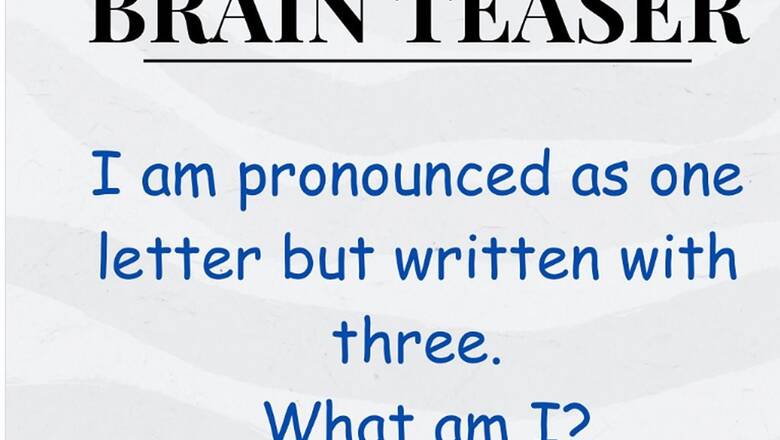
views
Puzzles and brainteasers are excellent hobbies to do alone or with others. Solving puzzles is a great way to challenge your mind. It makes one’s short-term memory more acute, strengthens memory, improves problem-solving abilities, and reduces stress. It implies that brainbusters raise IQ since they enhance reasoning, problem-solving, focus, and spatial reasoning. The internet is filled with such brain exercises that you can try out for enjoyment purposes. Recently, a brain teaser has challenged social media users, in which people who undertake the puzzle will get to find out their vocabulary knowledge. The interesting mind exercise was dropped on Instagram.
In this particular brain teaser, internet users must find the correct answer to the question that reads, “I am pronounced as one letter but written with three. What am I?” So, without further ado, let’s delve into solving this vocab-related brain teaser.



















Comments
0 comment